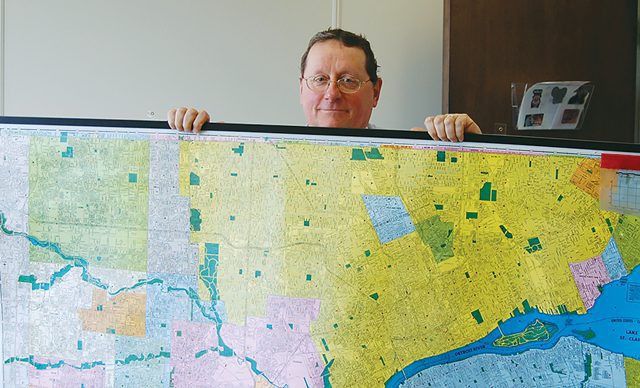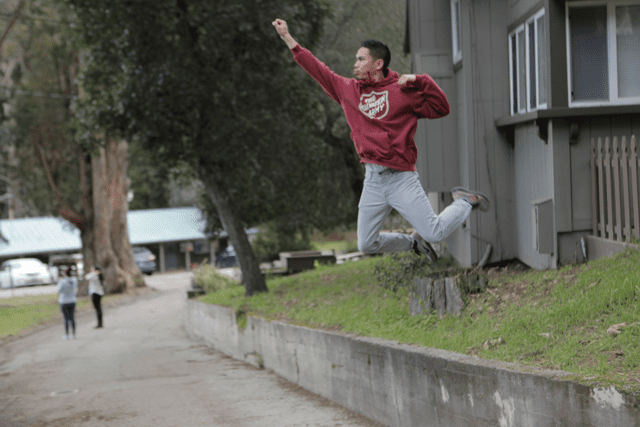Social services director works for social and spiritual redemption in Detroit.
By Kevin Jackson, Major –
Detroit is a city of vibrant cultural diversity, the automobile capital of the world. Yet, when people think of this city, they generally see crime, urban decay and blight.
In recent years its population plummeted from 1.85 million people in 1950 to 713,777 in 2010, according U.S. Census Bureau Data. In its 15th year of economic recession, it faces challenges from failing municipal infrastructure to city-wide bankruptcy.
It is reasonable to consider Detroit the poster-child of North American poverty.

And in the face of it all, Donald Czaplicki, divisional social services director for The Salvation Army Eastern Michigan Division, said, “The world has gotten better.” A lifelong Detroiter, Czaplicki has worked in social services in the city for the past 28 years, including 15 years as its director.
“We [Detroit] are the epicenter or ground zero of poverty. Children born into poverty have a better than 40 percent chance of remaining in poverty throughout their lives,” Czaplicki said. “But 60 percent don’t. We have to figure out how to lower that 40 percent rate by breaking that cycle of generational poverty. The Salvation Army can move people up and out of poverty.”
Czaplicki’s approach evidences zeal, professionalism, progressive theory and most importantly hope. Yet, he finds a delicate balance between dreaming about a better future for his city and actually making it happen.“Detroit is a very complex place, and when dealing with social issues it can be a difficult place as well,” he said.
In a practical way, social ministries in Detroit are carried out under a two-fold format—emergency services and Pathway of Hope.
Czaplicki said he sees many similarities in today’s Pathway of Hope approach to the early Salvation Army social work implemented by the “Slum Sisters,” who worked closely and in a hands-on manner with the urban poor over 100 years ago to figure out a way out of poverty. Pathway of Hope is a 21st century model to accomplish similar results. “The Pathway of Hope initiative seeks to approach poverty from a strengths-based position, to help the client see their lack of vision and demonstrate what their life can potentially be,” he said.
Czaplicki is the personification of what is known in The Salvation Army as the “Dual Mandate.” He sees the social and spiritual redemption of a community as two sides of the same coin. The local corps in and around the city of Detroit are critical to changing people’s lives. “It’s all hands on deck,” according to Czaplicki.
Although a Roman Catholic in faith, Czaplicki understands Salvation Army theology well. He sees the benefit of The Salvation Army as a part of the Holiness Movement. “We need to equip [Salvation Army] congregations to be the professionals,” he said. “Acts of charity are part and parcel of the Christian experience, and a path to holiness for Salvationists at the corps level.” By actively involving Salvation Army laity in social services they are improving the community and their own spiritual conditions simultaneously.
He is supremely hopeful about the future of the work of The Salvation Army in Detroit. The Salvation Army’s dedication to the city is apparent. With five corps remaining in Detroit proper, additional facilities delivering direct social services, a mobile food delivery program and several other corps in the outlying metropolitan area provide a strong commitment and presence despite the dramatic decrease in the city population.
Czaplicki perpetually looks for workable models and approaches in response to poverty in Detroit. He sees trends in micro-loans, entrepreneurial programming and the new agricultural/urban farming scene as options as he continues to create ways to help people move up and out of poverty in Detroit.














